Top 10 Essential Safari Safety Guidelines in Kenya
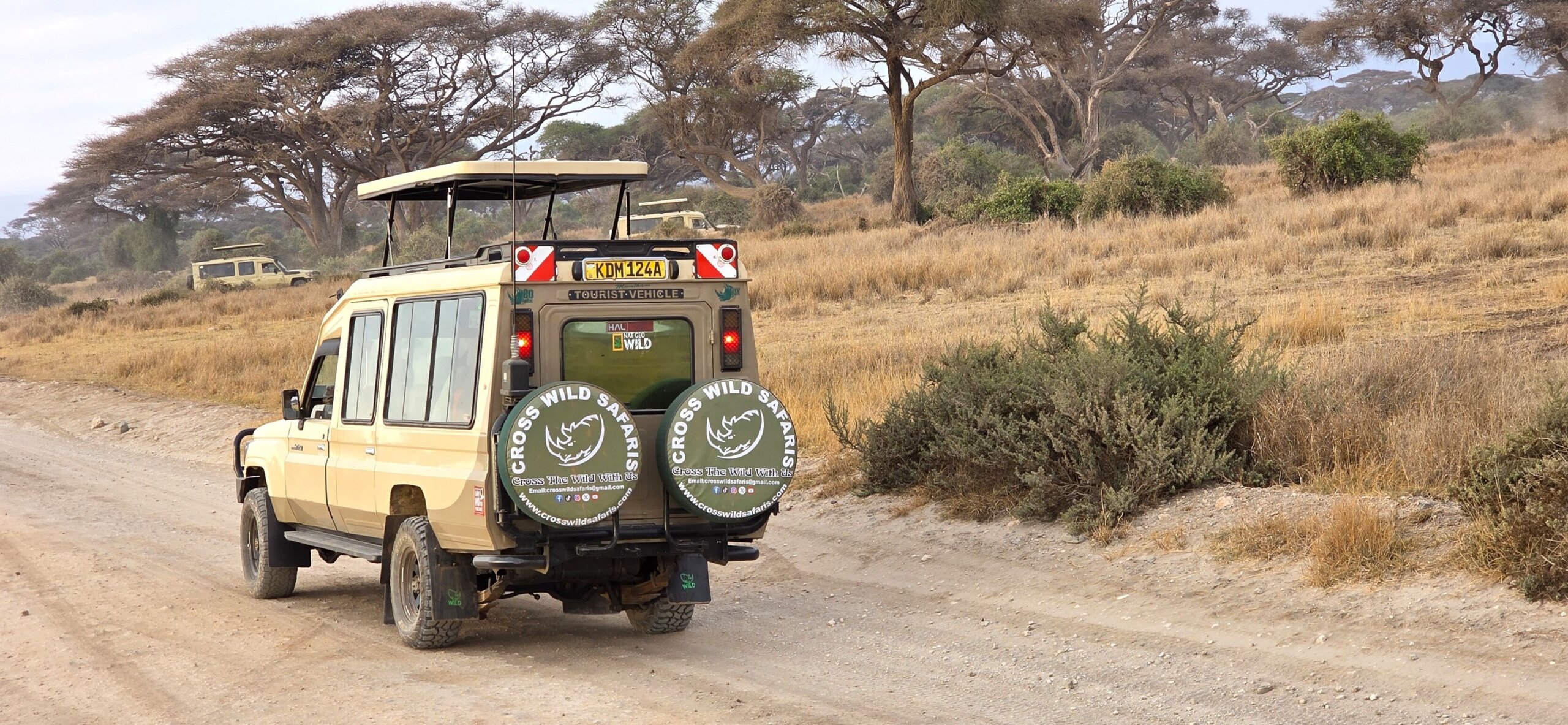
Going on a safari in Kenya is an unforgettable adventure. From spotting the Big Five in the Masai Mara to exploring the vast plains of Amboseli and Tsavo, Kenya offers some of the most thrilling wildlife experiences on Earth. But as exciting as a safari is, it’s important to prioritize safari safety to ensure a smooth and enjoyable journey. Whether you’re a first-time traveler or a seasoned safari-goer, these Kenya safari safety tips will help you stay secure while making the most of your African adventure.
1. Always Follow Your Guide’s Instructions
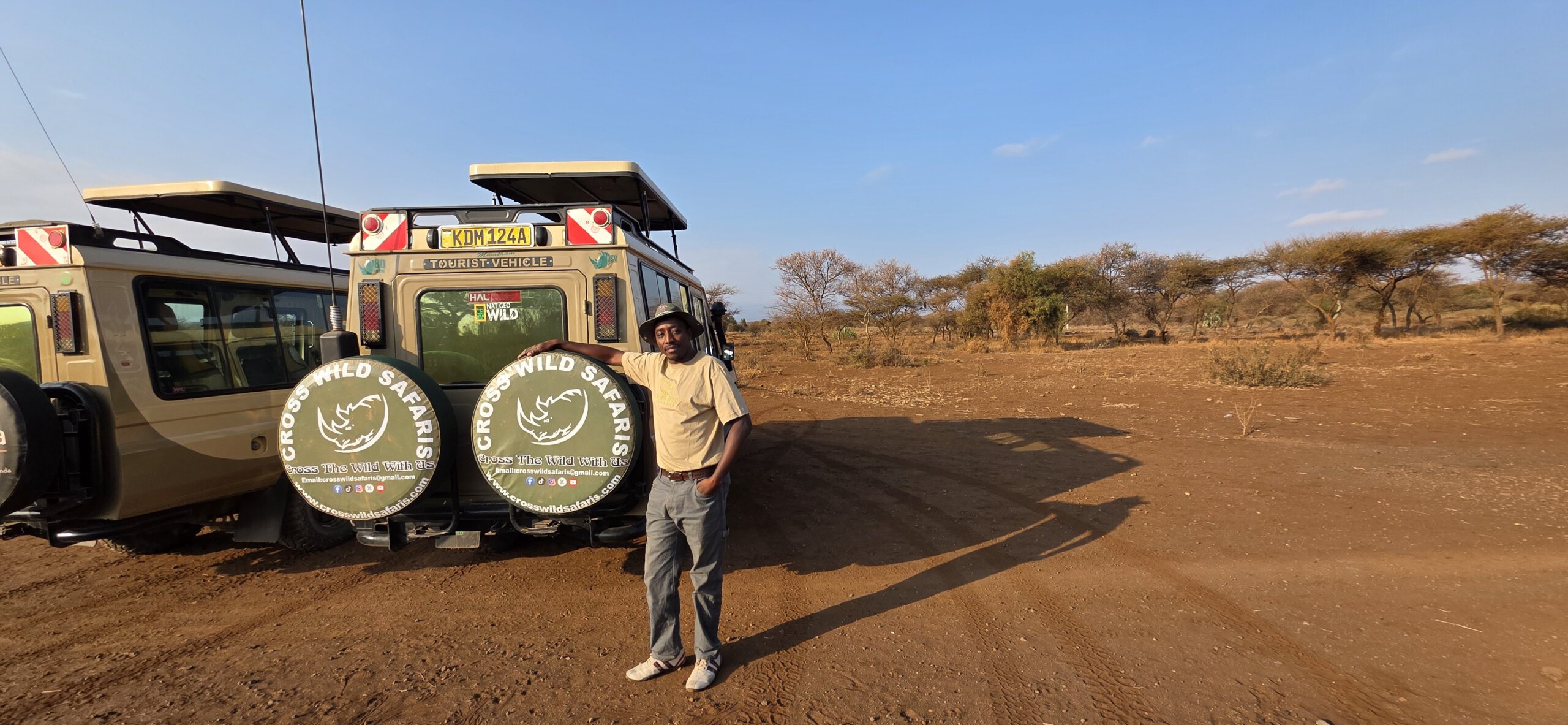
Your safari guide is a highly trained and experienced professional, well-versed in animal behavior and skilled in handling a wide range of wildlife encounters. Whether you’re out on a game drive, exploring the landscape on a walking safari, or relaxing at a remote bush camp, it’s essential to follow your guide’s instructions at all times. Their guidance is not only based on deep knowledge of the environment but also designed to ensure your safety and the well-being of the wildlife. By listening carefully and respecting their expertise, you help prevent potentially dangerous situations and enhance your overall safari experience.
2. Stay Inside the Vehicle During Game Drives
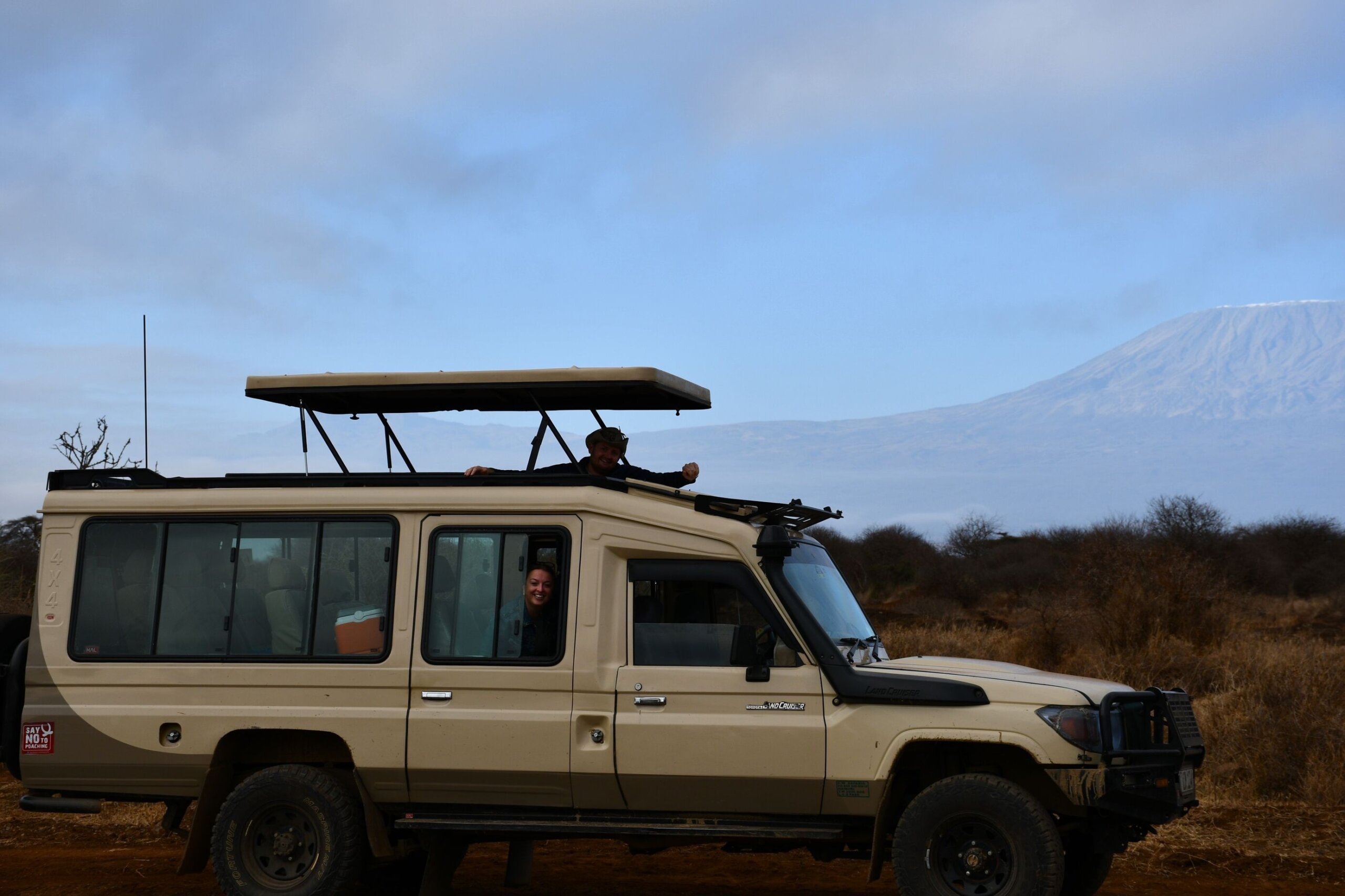
No matter how calm or relaxed the animals may appear, it is absolutely essential that you NEVER leave the safari vehicle unless your guide explicitly tells you it is safe to do so. Wild animals, including top predators like lions, leopards, and cheetahs, are incredibly skilled at blending into their surroundings. Their natural camouflage allows them to remain hidden in tall grass, underbrush, or even in the shade of nearby trees without being easily noticed. Stepping out of the vehicle without proper guidance can put you at serious risk, so always trust your guide’s judgment and stay alert to your surroundings.
3. Avoid Sudden Movements and Loud Noises
Wild animals in the bush can be easily startled by sudden movements or unexpected loud noises. Even the calmest-looking creature may react unpredictably if it feels threatened or surprised. Actions such as waving your arms, standing abruptly, or speaking in a loud voice can disrupt their natural behavior and, in some cases, provoke defensive or aggressive responses. To ensure a safe and respectful wildlife encounter, always remain calm, speak in a low voice, and avoid making any sudden gestures. It’s also important not to lean out of the vehicle or stand up in open-roof safari trucks, as this can break the visual outline of the vehicle and alarm nearby animals..
4. Respect Wildlife and Maintain Safe Distances
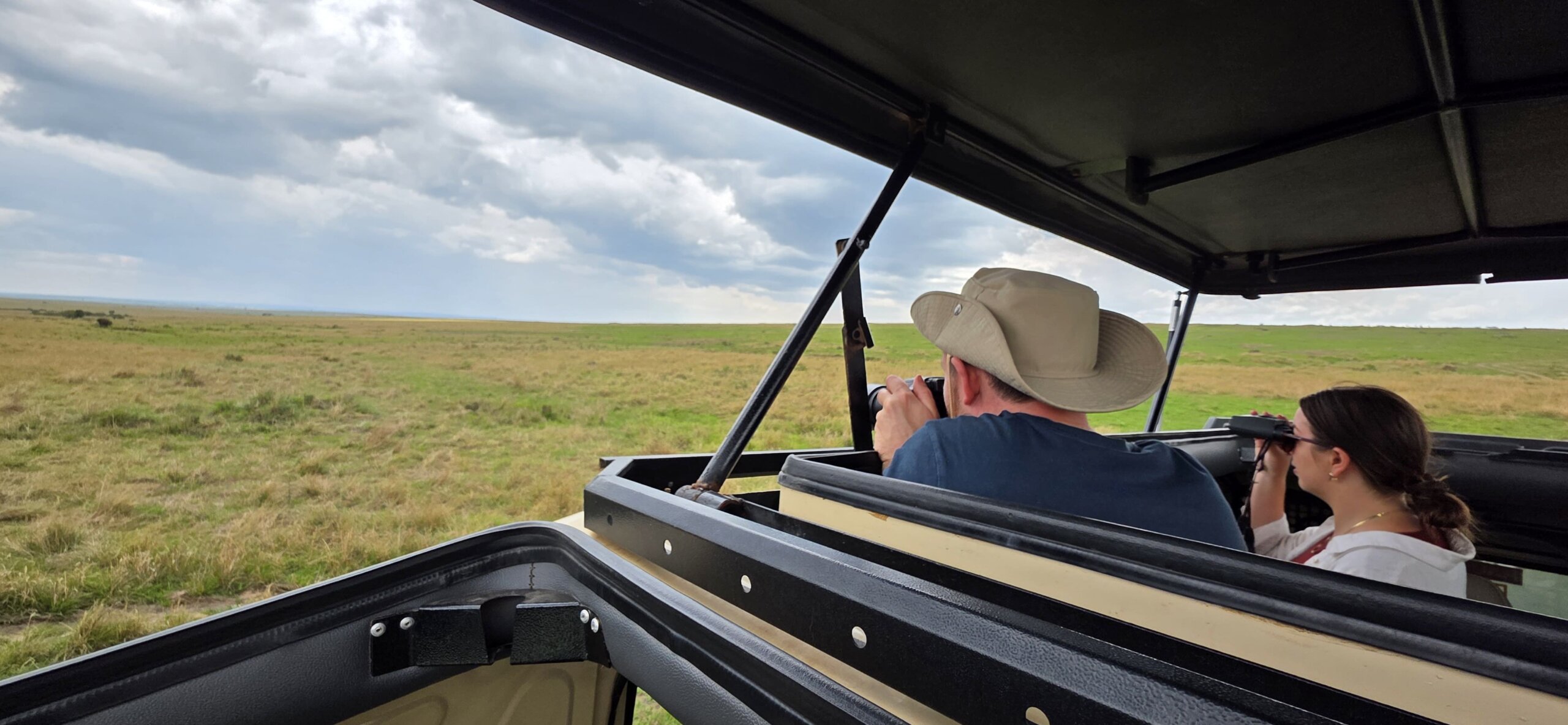
Always use binoculars or your camera’s zoom lens to observe animals from a safe and respectful distance. While it may be tempting to get closer for a better view or photograph, approaching wildlife too closely can cause them stress, disrupt their natural behavior, and potentially lead to dangerous situations for both you and the animal. No matter how calm or friendly an animal may appear, never attempt to feed, touch, or interact with it in any way. Wild animals are unpredictable, and human interference can be harmful to their health and safety. Responsible wildlife viewing ensures not only your protection but also the well-being and preservation of the animals you’ve come to see.
5. Be Aware of Camp, Parks And Reserves Safety Rules
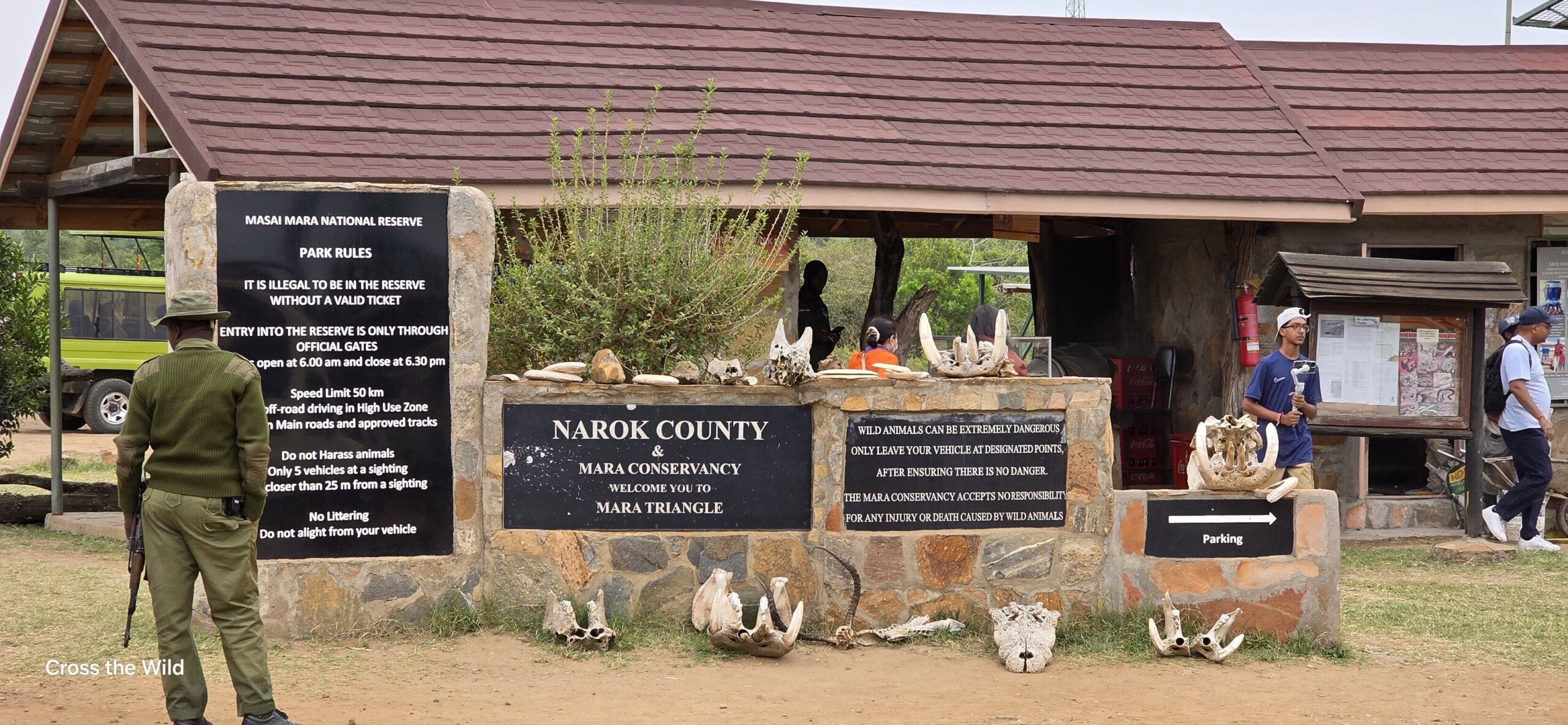
If you’re staying in tented safari camps or lodges, follow the property’s safety instructions, especially at night. Camps are often unfenced, and animals can roam freely. Avoid walking alone in the dark and always request an escort when needed. Also observe park and reserves rules always written on park entrances.
6. Protect Yourself from the Sun and Insects
To stay comfortable and protected during your safari, it’s important to dress appropriately for the environment. Wear sunscreen with a high SPF to shield your skin from the strong African sun, and don’t forget a pair of UV-protective sunglasses to reduce glare during game drives. A wide-brimmed hat is also highly recommended to provide extra shade for your face and neck. In addition, apply insect repellent regularly, especially in the early morning and evening, to help protect against mosquito bites and reduce the risk of mosquito-borne illnesses such as malaria. For added protection, especially during evening game drives, opt for long-sleeved shirts and full-length trouser to keep bugs at bay while blending in with the natural surroundings.
7. Keep Valuables Secure
Although safari camps are generally safe, always store valuables in a secure place and keep an eye on your belongings during travel. Carry only essential items when heading out on drives.
8. Have Adequate Travel Insurance
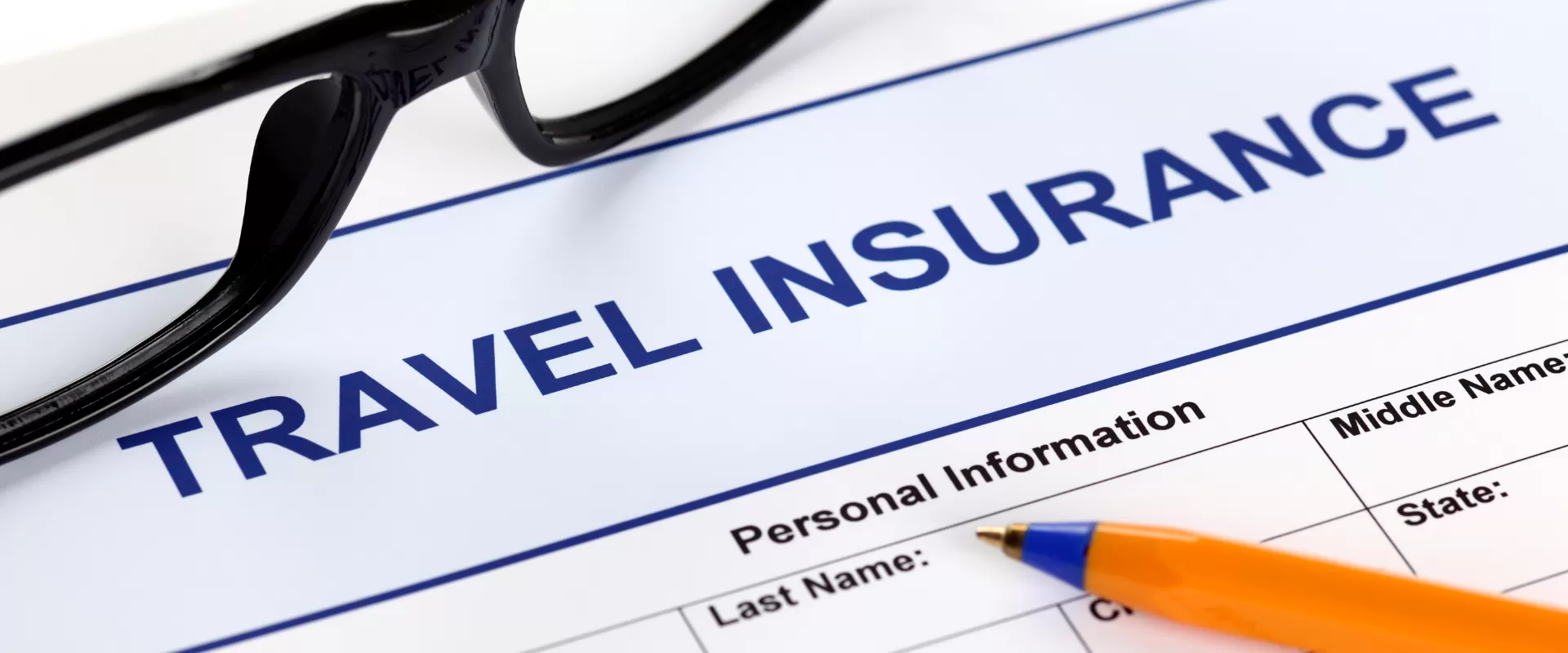
Ensure your travel insurance covers medical emergencies, evacuation, and trip cancellations. Safari destinations are often remote, and air evacuations can be costly if needed.
9. Prepare Safety Of Your Kids If You Have
Choose kid-friendly lodges with fenced perimeters and child-oriented activities to ensure a secure and engaging environment. Before your trip, brief children on basic safari safety rules so they know what to expect. Avoid walking safaris with very young kids, as these can be unpredictable and require quiet, controlled behavior. Most importantly, always supervise children closely during game drives and while at the lodge, especially in open or unfenced areas. With the right planning, your family safari can be both safe and magical.
10. Health And Emergency Preparedness
Consult your doctor about recommended vaccinations and malaria prophylaxis well in advance of your trip. Pack a small first aid kit with essential medications like pain relievers, antihistamines, antiseptics, and any personal prescriptions. To stay safe from waterborne illnesses, drink only bottled or filtered water throughout your journey. Finally, always save local emergency contacts and the details of your tour operator, so you’re prepared in case of unexpected situations. A little preparation goes a long way in ensuring a stress-free adventure.
Safari is wild. Your safety is key. Travel smart, stay alert, and always respect nature
For a safe, seamless, and unforgettable safari experience in Kenya, trust the experts at Crosswild Safaris.

